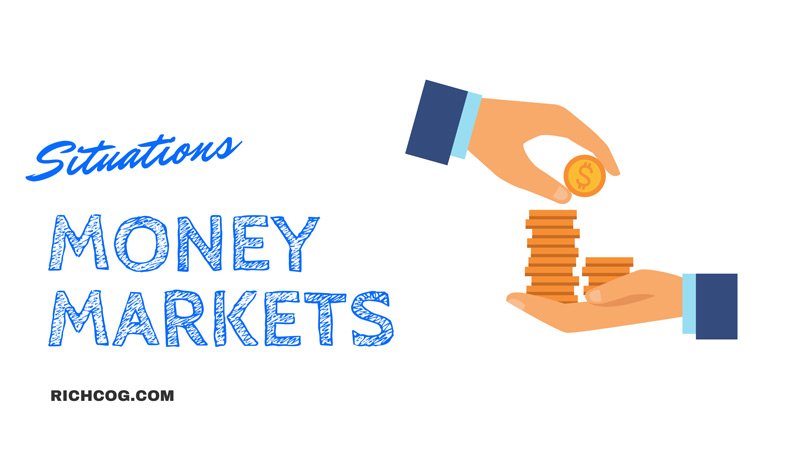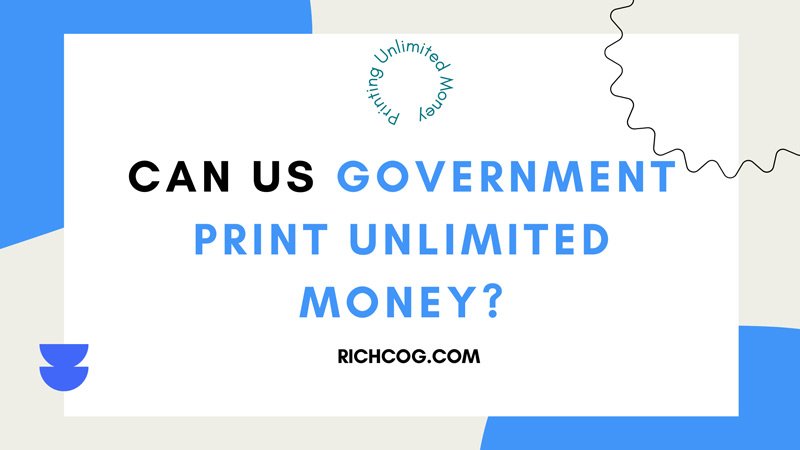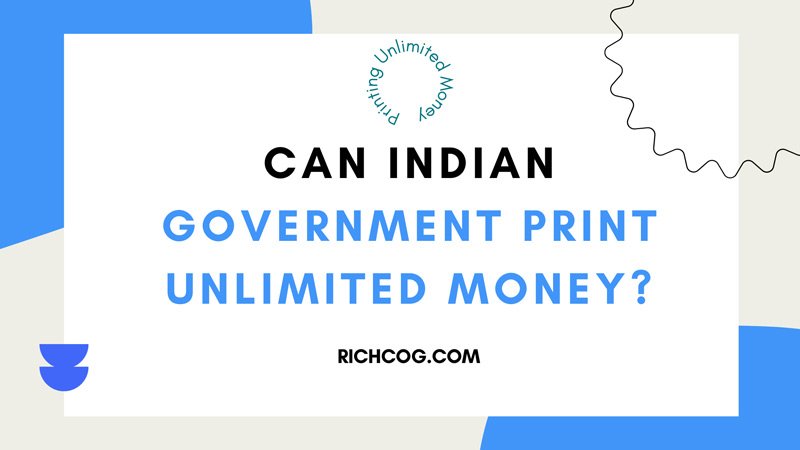Have you ever asked this question yourself, can government print unlimited money? and if you get some sort of answers from someone or somewhere, why government cannot print unlimited money? What is the reason behind it?
If you are more interested in economics, then you probably thought about this many times.
Have you ever noticed that in every country their currency value is always changing, that happens due to Inflation.
The government print only amounts of money that it needs to circulate the capital.
When we print a lot of money then the currency of the country is going to be worthless and worth very little.
Let’s take it this way: If there was only one dollar in the world, then that specific dollar could buy anything in the world, but if you had two dollars, and suddenly that one dollar is going to have little less worth.
You know about this case or not, In Germany after WW1[World War I] they were in huge debt, so they printed a huge amount of German currency and guess what happened next? They need over 1000 dollars to buy just one coffee, really?
The basic fundaments of printing money are, any country that prints currency has to keep reserves in gold/silver or any kind of service.
When you think about printing money if the government print more currency they also have to keep more reserve for it because of the medium of exchange.
It gives purchasing power in the hands of consumers which leads to inflation if done unreasonably.
So the point is if anybody keeps the money of a specific nation so he/she can either ask for gold/silver or any kind of service in return so that the money is printed only till required.
If money doesn’t have any value then the keeper can claim back in form of gold/silver and he/she doesn’t suffer a loss.
So if the country print more money, that will cause inflation or hyperinflation sometimes, which will increase the prices and put more pressure on gold/silver reserves.
Now let’s see why government cannot print unlimited money in deep and what is the main reason behind it and how it works?
Why government cannot print unlimited money? Facts
First of all, If you have a myth of believing that the government print money then here is the truth, the government does not print money.
In the case of RBI(Reserve bank of India) is the note-issuing authority except for one rupee note and if govt aims to print money it vows repository bills to RBI to secure relative currency.
The basic fundament of the currency system is RBI issues money based on the minimum reserve system that they have. It keeps ₹200crores of gold and foreign exchange to circulate money in the country.
Government deals with its consumption, based on its revenue which is its income as a form of taxes and borrowings. At the point when using surpasses earnings, govt resorts to shortage financing by vowing depository bills to RBI.
This shortage financing is held inside 4% of GDP according to world bank decisions. These decisions are designed to limit inflation and cash steadiness.
World Bank loans cash for structure projects on an extremely long(50years) and at a notable financing cost (1 or 2%).
Monetary discipline is essential for all, whether it's private or govt. In the event that the govt resorts to monetary stupidity the cash will lose its worth and the entire economy will deflate.

Can government print unlimited money? Two Cases
There are two things about money.
Its value in the National market and its value in the worldwide market.
- National Market
- Worldwide Market
Case 1 – National Market:
The main caveat of printing a lot of money is people will gonna have more than enough money to spend.
Let’s take it this way when more people will go into the grocery store to buy the same thing and the demand of that product will blow up right away and they will increase the value of that product which will cause inflation.
Note: This is only happening because the country’s GDP hasn’t actually raised or supply hasn’t grown either. But you might be thinking, what if the country chooses to import more to supply numbers? Hold on, we’ll talk about that later on.
The main point is, No country can be rich right away practically by just printing a lot of money.
Case 2 – Worldwide Market:
For example, your country’s cash is called ‘A’.
The worth of the cash in the unfamiliar worldwide market (its conversion scale) is defined by request and supply elements. Let’s take it this way, If you purchase an iPod from the US, your cash ‘A’ will be sold for dollars, and afterward, the provider gets the cash in dollars.
In case there is an endless number of individuals getting US items, the interest for US dollars will go up. Now, the US dollar is not endless in supply, and hence its value rises.
Allow us to say, your nation has printed a huge load of cash and is experiencing inflation. Now, a few groups in the US need to purchase PCs from your country.
As there is inflation, the cost of the PC charged by your country’s provider will be high in your cash ‘A’. As the equivalent (or comparative) PC can be purchased from another country, no Americans need to purchase the PC from your country at unreasonable costs.
All in all, Americans are not offering their Dollar to purchase your cash ‘A’. Subsequently, there is a fall sought for your cash ‘A’. Subsequently, the worth of ‘A’ will fall globally.
Therefore, printing additional cash doesn’t support you in the domestic or In the international marketplace.
So fundamentally to proceed more money there must be equal raise in production result (for example, others will keep on purchasing PCs from the country regardless of rising costs in case it is an excellent item), assuming you need your cash to hold its worth w.r.t. to products created inside the nation just as w.r.t. different monetary standards.
Can US government print unlimited money?
In the case of the US, the federal reserve bank can't certainly print unlimited money without any kind of consequences due to Inflation which I already mentioned earlier in this article.
First of all, every time it purchases something with "printed cash" (as a rule depository security or, of late, a home loan bond) it needs to purchase it from the bank and It pays for it by crediting the bank's saving account at the Fed.
And next to that process, to keep the banks satisfied with containing a lot of excess reserves saves in the framework, the Federal Reserve Bank needs to pay a market price important to those banks.
Simple Example:
The Fed would get a tremendous sum of cash from the financial framework, paying revenue on the borrowings, and utilizing the cash to buy that load of resources you say they could be purchased with that "unlimited cash." If you see it that way, it's not an "unlimited" amount of money by any means. It's simply a large "acquire cash, purchase resources" issue.

Tragically, that is actually what the Federal Reserve Bank did when it executed that load of episodes of Quantitative Easing a couple of years prior.
In three separate shots, they bought more than 3 trillion dollars worth of depository securities and home loan securities exclusively to drive down long-haul interest rates.
Their expectation was to get the economy rolling.
During that period, the U.S. encountered the slowest improvement ever from a downturn, regardless of the way that it was an extremely profound downturn that hit in 2009 (so the recuperation ought to have been keener, not blunter).
In Brief,
The Federal Reserve Bank did what you recommended, as much as $2-$3 trillion dollars.
With another $200 trillion or something like that of a similar attempt, they might have bought the world.
However, they’d owe the banking operation, at simply 1% interest, $2 trillion every year in interest on the obligation they would have brought about to do as such. As I would like to think, the $3 trillion of bonds that they really bought is as of now causing them an intense pain attempting to unwind.
We’ll be fortunate in the event that they can do it without causing massive inflation because of the mass resources, assets & reserves they hold to place in the banking operation to pull it off.
Can Indian government print unlimited money?
Let's take take it this way, with the real world example.
As a child, I used to have one question on my mind that can government print unlimited money and get rich quick? It will help in destroying neediness and other monetary issues winning in the country? and for you as well., have you ever thought about that?
The Reserve Bank of India is the sole expert in the nation which is approved to print money up to Rs.10,000.
RBI in conference with GOI(Government Of India) chooses the quantity of money notes to be printed.
In any case, in the event that we discuss printing unlimited cash, the solitary thing will do is, expansion in the course of cash in the economy cause inflation because the demand of goods and services will be high and it might also cause hyperinflation sometimes.
Simple Example:
The sum of goods manufacture in India is Rs.50 crore and just item created is pen at Rs.5 X 5crore. Also, presently the cash flow has expanded yet the quantity of pens is as yet 5 crore. Subsequently, the demand of that product will go up and the organizations have to raise their costs while supply will not change. Likewise, the worth of the cash will decrease leading in exchange rates. Which cause increase in Inflation rates than usual.
Money notes are like tokens.
Their worth is dictated by what is delivered in the country.
Let’s think about the marketplace just for a second, where everybody is paid in tokens. The quantity of things to be sold is limited.
The tokens can be utilized distinctly inside the market and the venders are told the number of tokens are being given.
In such type of circumstance, the costs will be connected to the degree of tokens printed.
As such the quantity of tokens printed will never really expand abundance and if you have more tokens won’t mean more merchandise coming into the commercial center as anybody coming from outside will request genuine cash (dollars).
So if the thought is to expand abundance it very well may be done simply by expanding efficiency not printing a lot of cash in the country.

And If you have this question on your mind of can Indian government print unlimited money?
Then, there is not exact restriction on printing cash on an government or its Apex Bank.
But the nation ceases from printing unlimited cash thinking about the microeconomic and macroeconomic viewpoints.
The macroeconomic viewpoint, as currently expressed, will be a downgrading of the cash while the microeconomic angle is having a massive demand and limited supply ultimately leading towards economic crisis..
In such cases, there is a huge chance to happen hyperinflation.
The impacts of hyperinflation are awful. As the govt. started printing unlimited money and the costs become out of this world and for individuals, they try not to pay a higher amount in future so they start collecting the products i.e., storing which at last prompts a shortage of goods.
Storing of products of every day use prompts an increase in poverty, lack of healthy sustenance and so on.
That’s why government cannot print unlimited money to balance the economy and avoid the crisis just like in 2007 case happed in Zimbabwe.
Last Thought
At this point, you might already get the answer to why government cannot print unlimited money, which causes inflation and high demand for the products because people will have a lot of money.
In conclusion, printing a lot of money is not the way to make your government rich or become competitive on the capital markets but producing cheaper goods, and facilitating exports help a lot to increase your value and GDP.
Disclaimer: The information you'll get on this article is well researched, but we still don't recommend you to directly relay on, what information we're providing to the readers.
